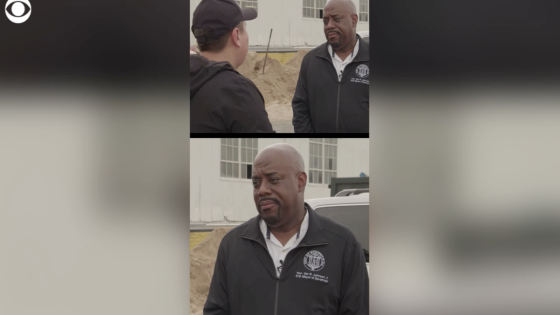Nigerian filmmaker Babatunde Apalowo, who won the Teddy Award at last year’s Berlin Film Festival for his gay romance “All the Colours of the World Are Between Black and White,” is prepping his next feature.
“Londoner,” which won the Red Sea Film Fund Award for best fiction feature at the recently wrapped Durban FilmMart, is the story of a Nigerian man whose life unravels after he arrives in the U.K. to be reunited with his wife and daughter. Produced by Apalowo for his Polymath Pictures shingle and Sarudzayi Marufu of Cato Street Productions, the film was also selected for the Berlinale Co-Production Market earlier this year.
Apalowo’s sophomore feature is a loosely autobiographical film based on the director’s own struggle to “find a home away from home” after moving to the U.K. two years ago. The Lagos native had fled Nigeria’s dense, crowded, teeming metropolis in the hopes of a fresh start in the U.K. But whereas his home country was a place where “personal space does not exist,” he found that “the opposite was the case” in London — worryingly so. “I realized I could die on the road and people would just drive on by,” the director told Variety. “For the first time in my life, I felt lonely.”
Like previous short and feature films he’s written and directed, “Londoner” is a movie about identity and belonging. It follows Ayo, a bank manager from Nigeria, who travels to the English capital to join his family. When he arrives, however, he discovers that his wife has fallen in love with another man and wants a divorce. Estranged from the family he’d planned to take home to Nigeria, Ayo suddenly finds himself cast adrift, trying to find a place for himself in the alienating whirl of London life.
It’s a story that resonates with Apalowo, who said he often felt like an outsider growing up. As the family’s first-born son, he had a series of expectations laid out for him from an early age. “Life is planned for you. You’re supposed to go to school, get a degree, get a job, get married and have kids,” he said. “I felt that that wasn’t my life. I struggled with it.” It hardly helped matters that he decided to become a filmmaker, a profession that while certainly respected in the home of the booming Nollywood film industry, wasn’t likely to win over parents hoping to raise a lawyer or doctor in a land of overachieving daughters and sons.
Splitting his time between Nigeria and the U.K., Apalowo said he feels like a product of both worlds while not feeling entirely home in either. “I’m still trying to find my community,” he said. “When I’m in Nigeria, based on my experience in the U.K., I feel very displaced…. I’m not that Nigerian when I’m in Nigeria. But I’m not British enough when I’m in the U.K.”
The director’s self-imposed exile is hardly unfamiliar to his generation of Nigerians, many of whom leave the country in search of a better life — often, he said, without fully thinking through the consequences. “The concept of japa”— a slang term for Nigerians fleeing the country — “is destroying the concept of family in Africa,” said Apalowo. “Nigeria is a very communal society. People are moving away, searching for greener pastures, and you find situations where families are torn apart.”
Estrangement, loneliness, longing: these are themes the director explored as well in “All the Colours of the World Are Between Black and White,” his tender portrait of the slow-burn romance between two men. While the film has had a healthy festival run, Apalowo said it was “almost impossible” to get distribution in Nigeria, where homosexuality is illegal and punishable by imprisonment, flogging and even death.
The director nevertheless managed to have an African premiere for the film during Lagos’ Africa International Film Festival (AFRIFF) — something he described as “one of the greatest moments of my life and career.”
That hasn’t made him any less of a black sheep in his family, though, after bucking tradition to set out on a path as a filmmaker. “My dad is still yet to completely understand what I do,” Apalowo said, laughing. “But I do understand. It’s coming from a place of love.”
Source Agencies



